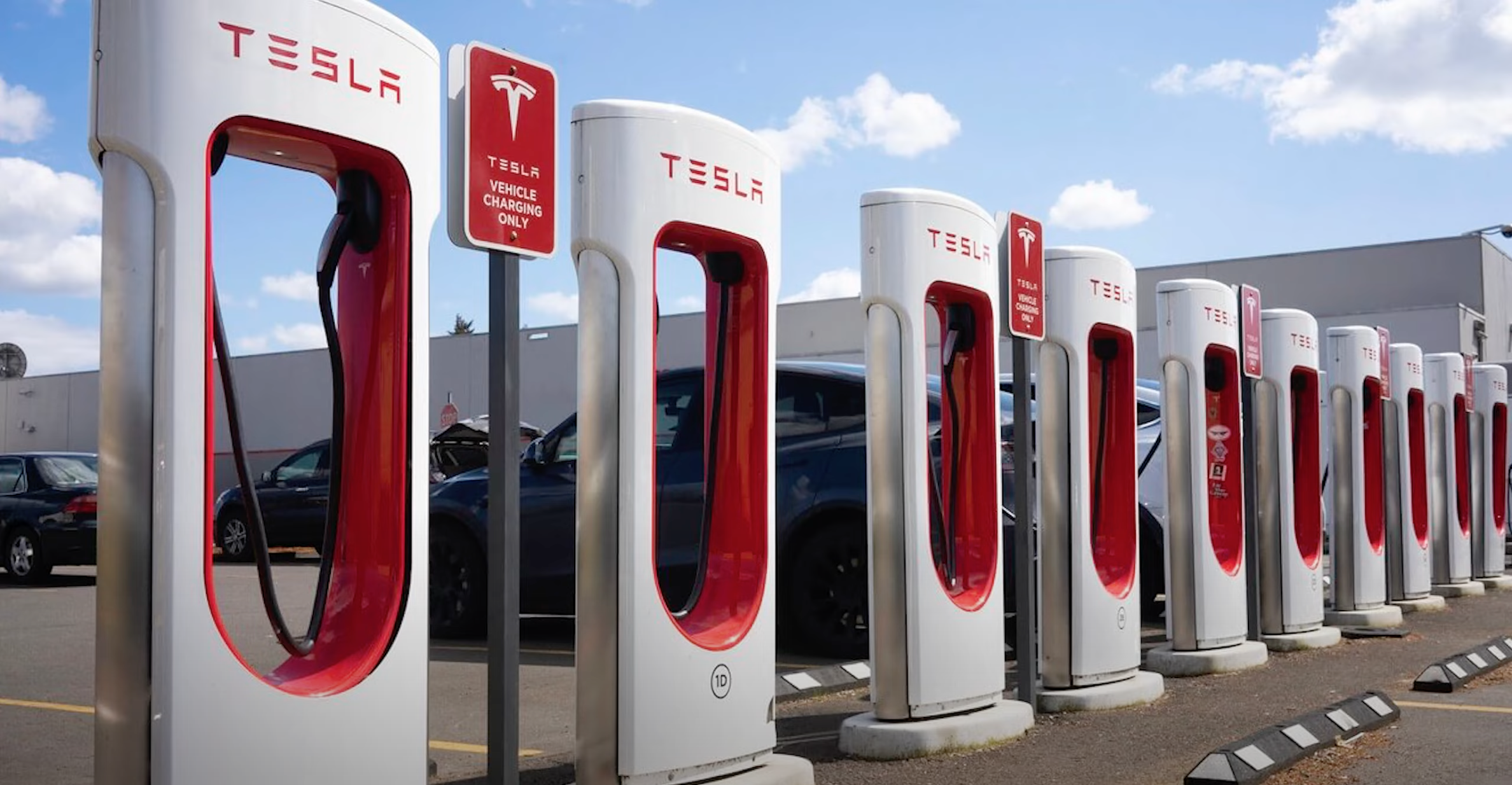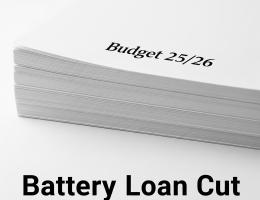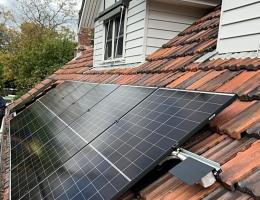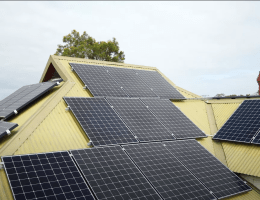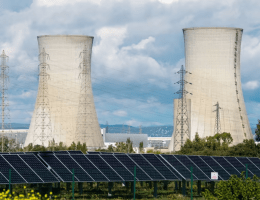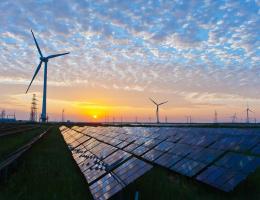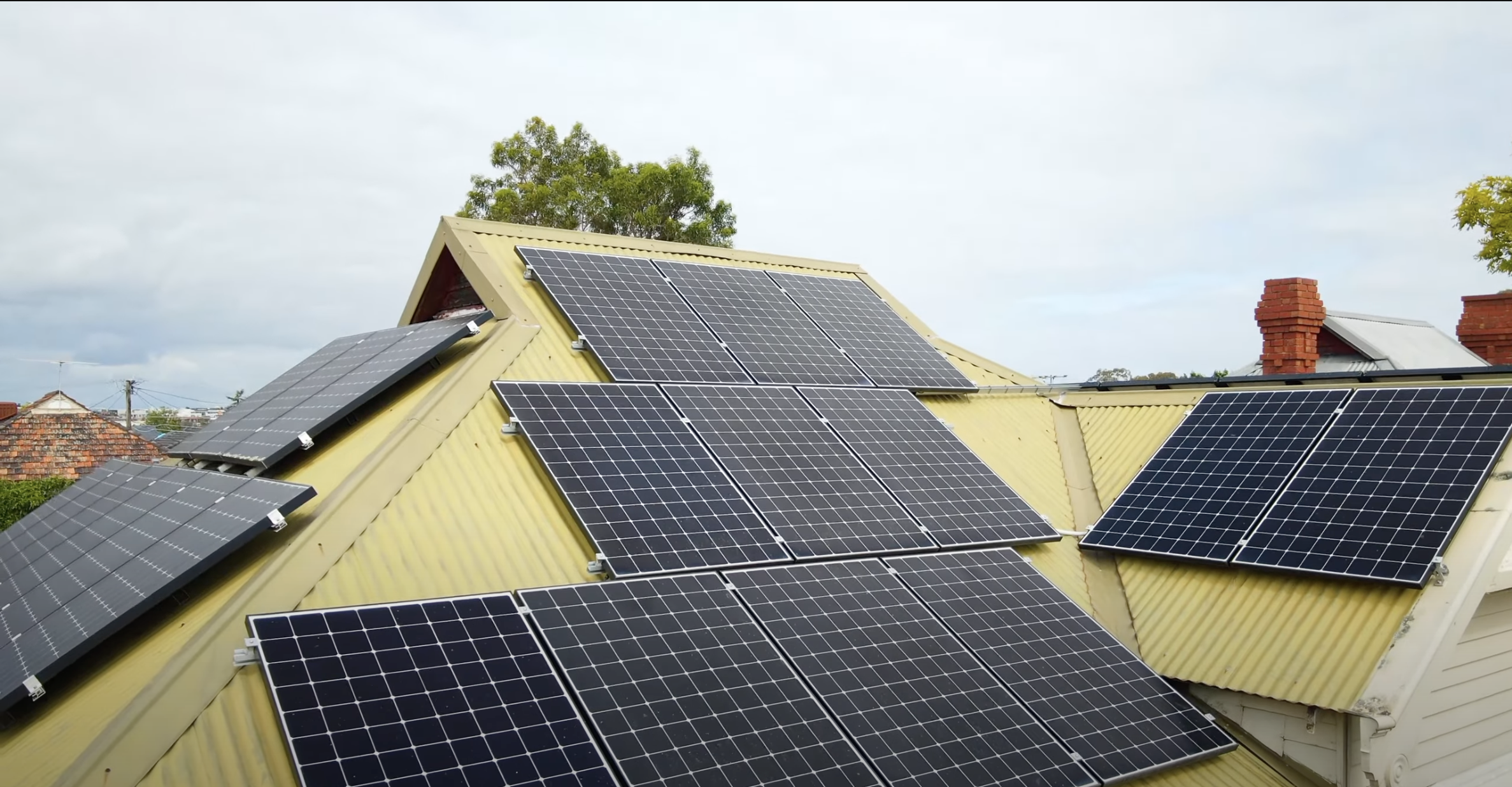
https://www.youtube.com/watch?v=OU8s0qIxxV8
As Australia moves toward an electric future, one big question remains: Can our grid keep up? John from Efficiency Matrix and Matthew, CEO of Pure Electric, tackle this question head-on in an engaging discussion about the shift from fossil fuels to renewable energy, the rise of electric vehicles, and the challenges of keeping up with demand. From solar-powered homes to the practicalities of charging EVs in crowded cities, they break down what these changes mean for our energy infrastructure and everyday lives.
Dive into the full transcript below to catch all the nuances of this pivotal debate.
John 0:00
We want to talk about today, specifically whether our grid can handle electrification of our homes.
Matthew 0:07
Thanks John, it's a good question. Can the grid cope with the move to electrification? So the big substitution is gasses coming out of our homes. This is particularly in the southern states, where there're heating climates. So ACT, southern New South Wales, Victoria, South Australia, Tasmania, they're the places where gas could be used to heat houses. And then there's the electrification of transport. So at the moment, we're importing huge volumes of fuel from Saudi Arabia, from the Middle East, from something might make its way to us, from Russia, and that's powering our transportation. But what if, you know, we're at 9%, we're heading towards a 9% sales of electric vehicles. What if those sales go like Norway, 95% electric vehicles, and suddenly we're changing the whole transport fleet over to electrification? Can the grid, can the poles and wires, can the generators cope?
John 0:56
So at the moment, what's the percentage of renewable energy on our grid
Matthew 1:00
Annually, like over the next 12 months, the Australian electricity grids, including West Australia and the eastern seaboard grid, are going to run at about 40% renewable energy. So that means 40% of the time you're running your toaster or you're doing whatever you do, use your computer; for me, charging my car. That if I did that from the grid, it would be renewable energy. It's powering that solar and wind and existing hydro. So the other 60% obviously is going to be fossil fuels. But the equation is that the renewable energy is going up and the fossil fuels is going down. And there's an added factor in that people are by the 10s of 1000s. In fact, there's 3 million houses already. People are getting solar, and they're now getting big solar systems installed on their roof. So they're actually now providing power for themselves and an excess to the grid for everybody else to consume.
John 1:49
which is extremely useful, especially on sunny days, but then on less sunny days?
Matthew 1:55
Well, what's happening now is the systems are getting really big. Where someone just rang me and they said, "Oh, 14 years ago, my father got a system. It was 1.5 kilowatts. Why are you suggesting we buy a big system that's, you know, you've got an option here for 10 kilowatts. You've got option here for 15 kilowatts. Why are you suggesting that?" And I said, because we're designing a system that will work well under most cloudy conditions in winter, whereas your father's system 14 years ago, that was good for two thirds of the year, but not doing much at all in winter. So that's why, when suddenly the system's 10 times bigger, it's now able to cope with winter. And that's the reality, is that there's three times a generation in the peak of summer months than there is in the lows of winter.
John 2:33
But we're also now starting to throw in our cars into that energy mix, right? Of our homes, where we can potentially start leveraging off some sort of a renewable energy system integrated into our homes. Can a home with a 10 kilowatt system sustain and move our cars?
Matthew 2:49
Absolutely. So a car annually, I mean, there's no one's average but there is average fleet statistics. You know, people are driving, they're commuting 40 kilometers, round trip per day or whatever, on average. So if an average driver is doing 14,000 kilometers per year or something, they're going to need 2500 kilowatt hours of electricity to run that vehicle, if it's an electric vehicle, per year. So to get that off a roof in, say, Melbourne, that requires about three kilowatts of solar that'll be skewed towards summer, that three kilowatts production. But the point is, if they're actually putting 11 kilowatts of solar in and they're running their house and the car, they'll have enough solar in winter as well to run that car. So people installing, the average right now today is 11 kilowatts. So people installing enough solar to generate about 11, 12, 13, 14, megawatt hours, or 14,000 kilowatt hours of energy. A car just needs 2500 to run for the year, and that's the average system going in right now across the country.
John 3:51
So what would happen overnight if we all just decided to get electric cars now?
Matthew 3:54
There would definitely have to be careful management of scheduling of the cars, and we burn more fossil fuels in the interim to power those cars, because the renewable energy that's going on to the grid now, most of it is being used, definitely in the winter months. In summer, we are curtailing some so with schedule charging during the daytime and so on, we could actually soak up some of that extra renewable energy that's not being, the potential, that's not being used right now. But all we'd have to do is install a bunch of renewables over the next two or three years at a high rate, and that would make up for the requirements for that electric vehicle fleet. We'd look at about 15% more energy demand from the electricity grid to run that electric fleet. Now it's impossible to electrify tomorrow. We could, we could radically move to electrification of the transport fleet, even at some extreme rate. It's going to take 5, 6, 7, 8, 9 years, 10 years to get there. Okay, so it's not going to happen overnight. So it's actually a fairly easy integration. And the thing we've found is that once people buy an electric vehicle, they're obviously not subscribing to all that anti-renewables, anti-EV crap, if it's out there, okay. They actually realise that an EV is a comfy car to drive and it's cheap to run. And then they think, Oh, I used to time my petrol purchases to say Thursday, when the price cycle made the prices cheaper. What will I do now to secure my fuel supply, to give me low cost fuel? They all think, Oh, I'll bring forward that idea I've had for a long time to get solar, and I'll put solar on my roof. So the 70 or 80% of Australians who live in detached houses where you can put a solar system on the roof, they'll rush out and they'll get that average 11 kilowatt system, or they'll get a bigger system, they'll put it on the roof, and now they've got enough energy summer and winter that they've prepaid for. They've put that down payment for. They're hedged. No one's going to come and increase their fuel price in the future. They've bought a car for 15 years or 10 years or whatever. They've bought energy for 15 years, and the price isn't going to change. They've prepaid it, and now they're effectively, from then on, charging for free.
John 5:53
I mean, what I like about renewable energy as well is that it's made here when we get oil or when we get petrol, it's always coming from overseas,
Matthew 3:58
and it's causing war and conflicts,
John 6:00
Well, that's right. And then if there was a big conflict that may occur, I mean, we're going to have issues getting oil to this country as well. So it's sort of, it's a lot more stable, and we're actually producing the energy here.
Matthew 6:14
Australia's on the arse end of the world, so there's a supply logistics chain problem. We're the hardest place to get energy and resources too, you know. New Zealand's okay because they're already 90% renewable as a matter of their climate, in the event they've got all that hydro and stuff and some wind. But Australia, if we were dependent on energy that's imported, and we aren't radically shifting to electrification of our transport fleet, yeah, the place is ground to a halt. So electrification is a serious answer to our energy security requirements, our transport security.
John 6:50
One of the real obstacles for people, especially in inner cities, to get an electric car, is just being able to get a charge cable into the car. What's the solution that you've found?
Matthew 7:00
Okay, so there's no approved solutions being rolled out yet in Australia, which is unfortunate, we're not alone, though. We have inner city area, areas that maybe cover 5% or 10% of the population where we don't have off street parking available, but if you think of Europe or the UK, for example, it's like 70% of houses are in that predicament. So they've already solved this. They've already done the groundwork. They've solved charging crossovers. So for the time being, at my place, I've managed to repurpose an old redundant drain and get that refurbished. We can run the cable down to the car. But ultimately, the solutions in the UK are fantastic. They're like a 40 mil channel that sits across the footpath. It's bedded in the footpath. It doesn't go all the way through the full depth of the concrete, so there's no interaction with any services or the dirt under the concrete. So we know there's no risk involved. They're cutting the top half of the foot bath, 40 mil deep, and they've got a little lid so they don't provide any trip hazard, no change to the surface. So it's very easy to traffic for someone with a pram or an elderly person or a runner, there's no change to the surface, and it's very easy with those solutions, just to lay the cable in, lock it off, and then plug it into car. In the meantime, I've got this drain pipe that's been repurposed, and it works fine until the Councils get on board and let me put in a proper charging crossover. This is what we've got. So we can give a demo of that. Yeah, let's do that now. So to transit the footpath, this is a normal electric charger, and this is a consumer cable. So some charges are tethered, like this one. That means the consumer cable was connected to the appliance.
John 8:38
So it's a consumer cable with the consumer plug.
Matthew 8:41
Yeah, so it's like an extension lead from Kmart. They pay four bucks, but this is a specialised one that is designed with a higher rating to charge an electric vehicle.
John 8:49
Now there are clear rules for moving a extension cord over another property.
Matthew 8:56
You're not allowed to power your neighbor with an extension cord. You're not allowed to get an extension cord and wire your house with it. You've got to engage an electrician to wire your house, and they've got to use proper fixed wiring that's designed to last a long time installed. But this is a consumer cable. So consumer cables are consumables. I mean, this is expected to last a long time. But, you know, it's out in the weather, so it could be that you're replacing these every, every 10 years or so.
John 9:21
But there's no real rules on where or how it needs to be run to something in order to be plugged in. Like there's nothing anywhere in our building code, in our construction code.
Matthew 9:30
No, not consumer cable plug. Yeah. So the actual, the actual appliance, is a hard wired appliance with an isolator that's installed here, and that runs underground, 600 mil and back to the house's main switchboard. So that's because that's a fixed appliance. But once you get to the extension cord, that's a consumer cable. My neighbour's got one. Hers is untethered, so she actually has to, she brings her own extension cord, plugs it in, and then takes it to the car, then she rolls that up and can take it with her and use it one at someone else's house or on the road. I just bought the one that's built in so it hangs out the bottom. So it's a consumer cable. We're going to run the consumer cable down the pipe. The main key, and I've got a plastic cover if there's any water around, but the main key is always keep your terminals dry. And anybody who spent money on the charger which is not cheap, and on an electric car which is not cheap, or any car's not cheap, they're not going to want to get dirt or water there, because you don't want corrosion on the terminals, either at the car end or the plug in. So we always keep that dry. And I've never, ever got a speck of dirt or water on it, and that's how you want to keep it.
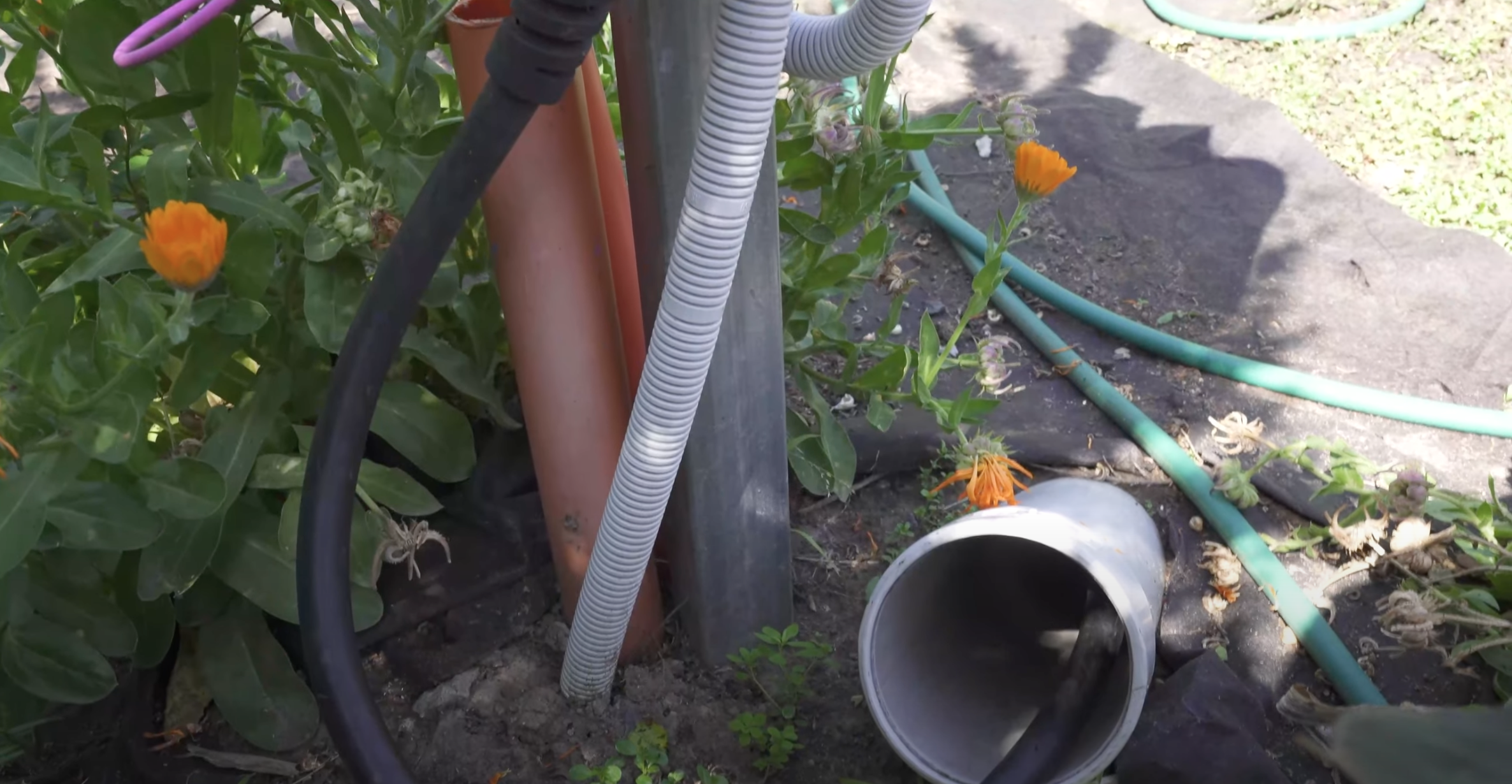
John 10:33
Now, there's also an RCD in this. There's an RCD backing board,
Matthew 10:37
Yeah, residual current device. So what we used to call safety switches. The one built into the appliance. And the board has to have one, that's in the wiring regulations today.
John 10:46
And on top of that, I mean, if there's no data getting back to this thing via this cable, it also terminates the charging process.
Matthew 10:55
Yeah, that's right, it's got a comms Yeah, so there's two comms ports and and they're constantly talking to each other,
John 11:02
so if it's somehow vandalised here, then everything just cuts out.
Matthew 11:06
Yeah, that's right. All right. So we're gonna just run it down the pipe. So what I do is I push it down most of the way, and then I go to the other end and I pull it through. I've just taken the bung out, and the bung is a rubber bung, and it just stops dirt and leaves and things like that going there just to keep it relatively clean. It's not watertight, so moisture does get in there, and then it just dries out, drains out. It's got fall on it. It runs downhill because it used to be a drain, so obviously it's higher at my house and lower at the curb. If there is any water around. I've got another plastic sleeve that goes over the top and that keeps everything dry with two or three times a week charging. I don't need to charge on the days it's raining. At the moment, I got 4.9 kilowatts excess because the other cars on the charge. So that means the two of them won't charge at full speed of 50 kilometers per hour. But with this Zappy charging setup, we can choose a priority one if we want to prioritise one over the other. Okay, and we're off. So now we've got two cars charging. John's joined us with his electric car. His charging rate has dropped off because I set the Zappy charger ecosystem so that my main charger has priority. But there is an option where I can set set it to shared, so we both get 50% everything available.
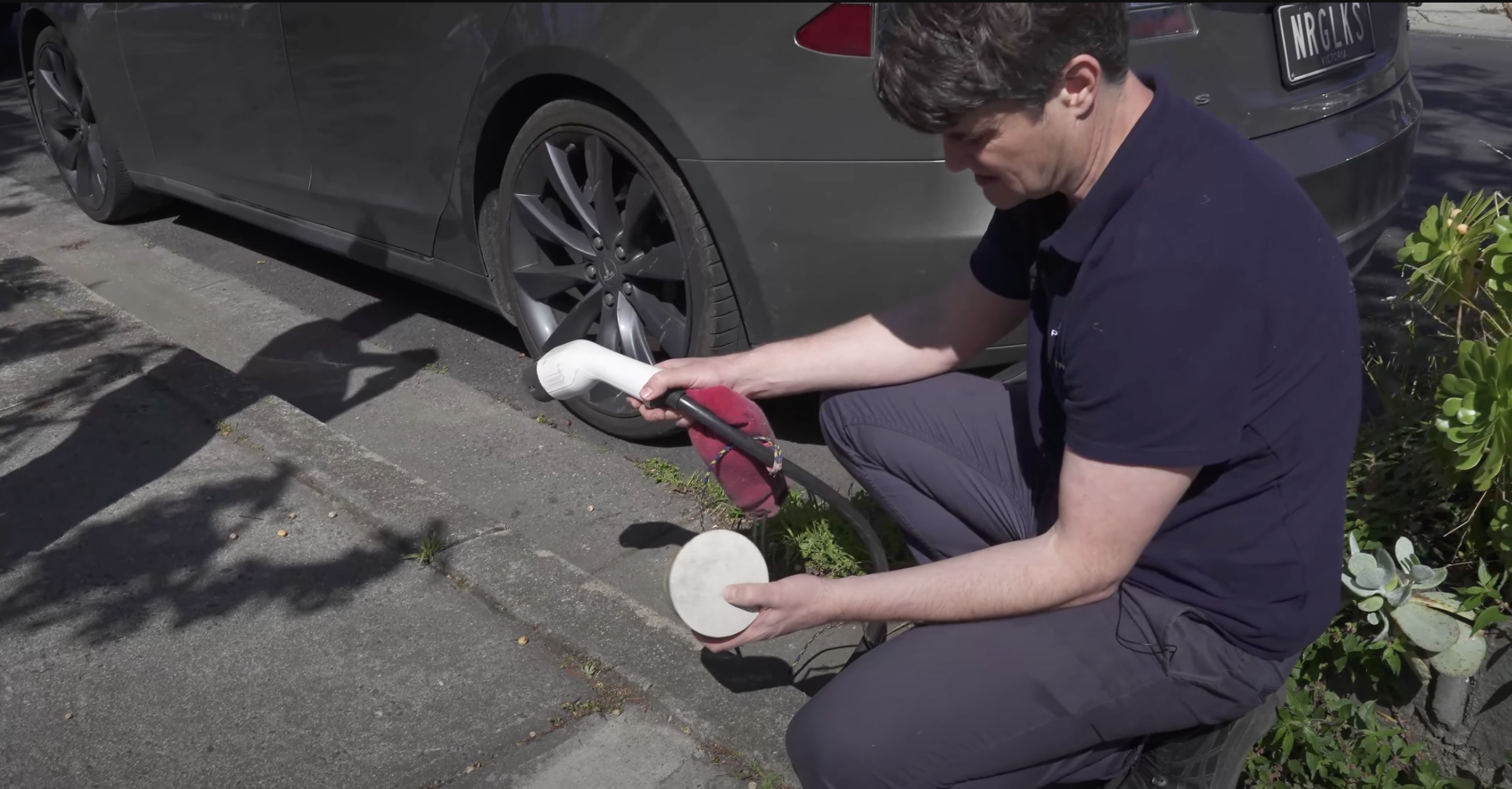
John 12:20
So Matthew, some of the big misconceptions with electric cars is that the batteries might only last 100k range
Matthew 12:27
Or you need a replacement in eight years. Now, just because they have an eight year warranty doesn't mean that's how long the battery lasts. There's a lot of things we buy they have a one year warranty. Yeah, we hope to get 10 years out of them, like our stereo or our Xbox or our PlayStation or something?
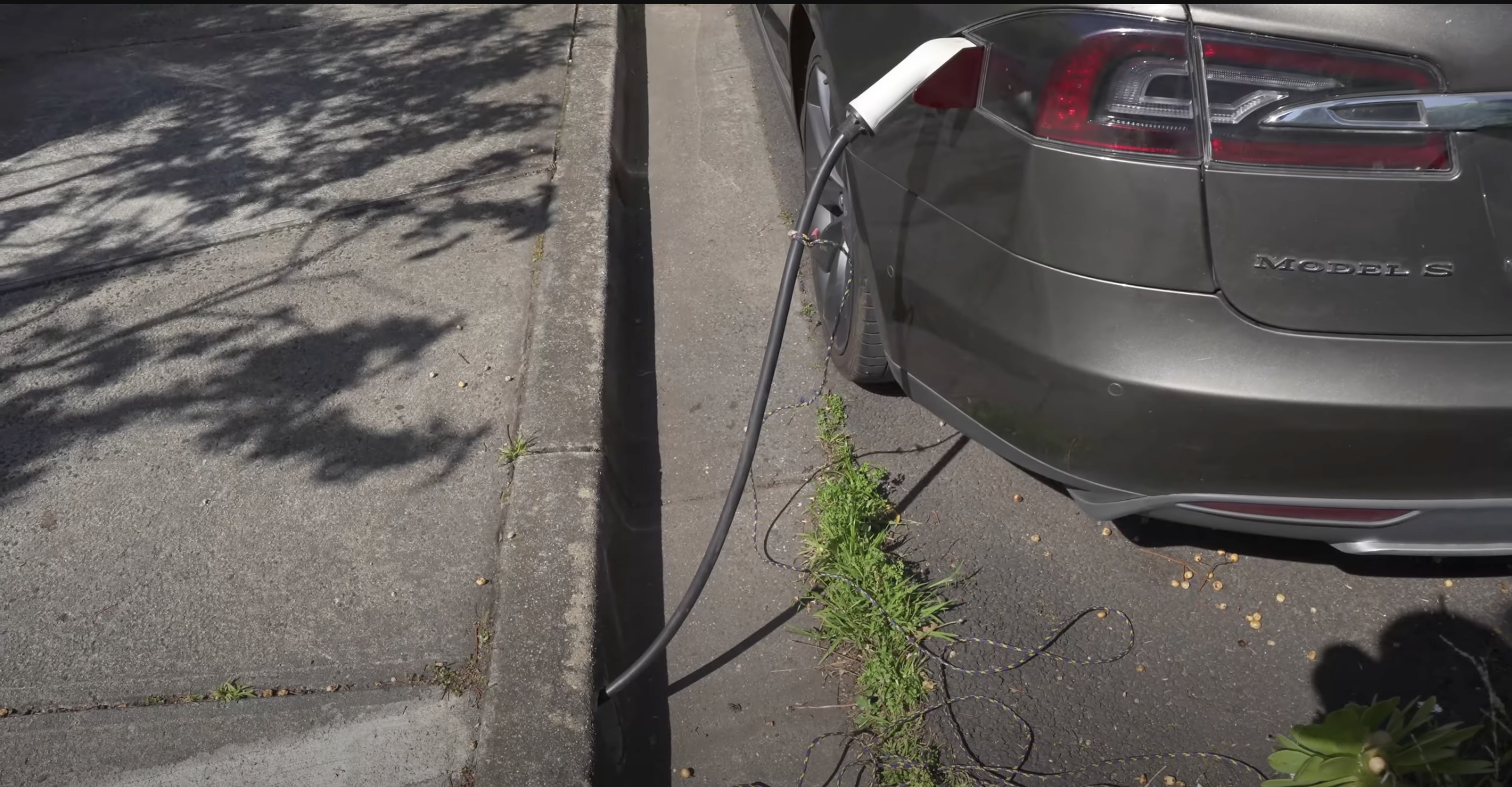
John 12:42
Yeah. Well, so this is a Model S, Tesla, 10 years old now, 250,000Ks,
Matthew 12:27
Yeah, I've got 100,000k, mine doesn't have as many K as yours. And I had a guy sitting next to me, and he said to me, he goes, "Don't you have to replace the battery at eight years?" I said, you're in a car that's nine years old. We're going on a long trip. We've still got 320k left on the clock, and that wasn't fully charged. He's like, Oh, okay. And he was from Germany, and he had this misconception.
John 13:08
So yeah, I mean, I haven't had any issues with the battery. I mean, there's obviously reduced range on it, but I mean, it still charges the same. It's still going
Matthew 13:16
The amazing thing is that your range at 250,000k and my range reduction at 100,000k is about the same. So you've got a real benefit in your one because you get the same degradation as me. We've both lost about 12% of our range since the factory, and that was with old chemistry. Like today, there's been so much money and so much research and development going into batteries. A new battery today is better than the battery that went into our car, yeah, sure. And our cars' ones are pretty good.
John 13:40
And then the price of these batteries is also going to go down as well.
Matthew 13:44
Yeah. I just want to point out also, a combustion engine car, it's going to get a 5 to 10% reduction in performance as well because people don't maintain them properly. The rings wear, you know, the combustion is not complete, there's oil leaking into the chamber and stuff like that. We're sort of maybe just a tad worse than where an ICE car would be at 100,000k you're probably better than where an ICE car would be at 250,000k.
John 14:00
It's amazing, isn't it? This would enable you to charge during the day from solar, especially if you were charging at night.
Matthew 14:16
So after we've run everything in the house from the solar, after we've charged the cars, we've always got mixes, and that power goes into the Powerwalls. As evening falls, the power will start to discharge. So I've got 27 kilowatt hours here. When I bought these, the cost of battery storage at the cell level, which fundamentally drives the cost of storage, would have been five times the price of what it is today. When I bought the car, it would have been 10 times what it is today. So I bought 27 kilowatt hours at the time, and I see that it'll be commonplace that houses, suburban houses, ordinary houses, would have 100 kilowatt hours of storage installed. If you think of it, the battery density going up. It's probably four units like this, but each unit will be rated twice as much. That's what I see the future to hold that's pretty exciting. This pretty much makes us 99% and if we wanted to be, we can be autonomous from the grid, but with no behavioral change, we're about 99% decoupled from the grid.
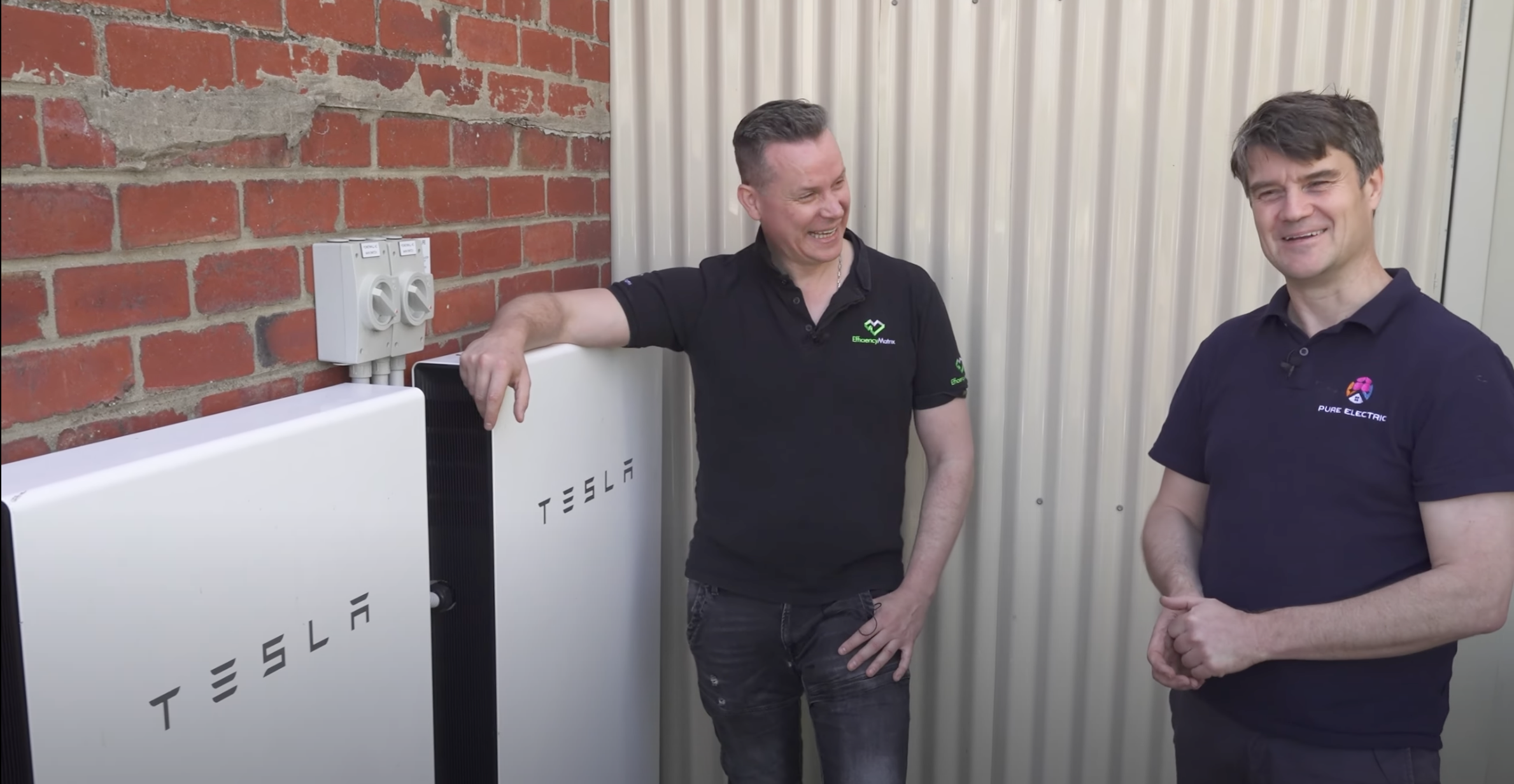
John 15:11
Incredible, especially because I've seen the state of the building envelope here, and it's pretty woeful.
Matthew 15:19
Yeah, well, years ago you did the air pressure test on the house, it didn't come up so well, but it's actually improved since then. Yeah, the floor, the cracks in the floorboards, have been sick of flexed so they're not a vector of loss, but I've got a plan to get the windows upgraded to double glaze, and at the same time, that's when I'll go through and do the air sealing remediation. Then I'll get through winter, because that's the time when I need 1% of input from the grid to drive the heating of the house. The car's already rolling storage. There's two types of rolling storage. The car's sort of passive rolling storage in that I can choose to defer charging to a day with more solar during winter. And that means that the car keeps soaking up solar, even though winter's challenging, because I only need to charge two or three times a week. With the heating and the house, we got to heat every day. So if we can fix the building envelope to a point where the heating inputs right down, then doesn't matter if it's really crappy conditions, cloudy, I've only got a small amount of solar coming in, I can run this house. It all comes down to heating. So heating is actually more challenging than electric vehicles, even though everyone's freaking out about how we're going to charge all these electric cars if, imaginarily, we win electric cars totally tomorrow.
John 16:28
Okay, so what have you got pumping these things? Or what do you got pumping your car? What sort of a solar system have you got?
Matthew 16:34
It's a 40 kilowatt solar system. So what I've done is 2016 I saw the Elon Musk big headline reveal of the Tesla solar roof. I looked at the dollars of it, it was like $150,000 for one that was smaller than mine. So I thought, I can approximate a solar roof. And we all should be approximating solar roofs right now, just by using commodity solar panels. Yes. So I installed a commodity solar panel system decked out every aspect of my roof, you know, inner city block, not the smallest inner city block, but not the biggest, either. And I've managed to get 40 kilowatts on here. And subsequently, since I installed that, the efficiency of solar panels has gone up such that you can do the same thing as me with 8% less roof area. So on an ongoing basis, solar is improving at that rate. Just like lithium ion battery storage is improving, it's always improving. So where it's actually a good price, it's good time to buy now it'll even be better tomorrow.
John 17:30
Yeah, I mean, one thing that you changed my mind about some time ago was south facing roofs. Everyone's like, you can't put solar panels on the south facing roof.
Matthew 17:38
So south facing roofs in Australia yield the same energy as the ideal roof in Germany, which is also a south facing roof. Yeah, we get the same amount of power. So we just installed all our solar South we'd get the same amount of power out of every panel, is what the Germans get out of their their ideal panels. Once we've run out of North roof, run out of East roof and West roof, the next obvious place to go south, you're getting a little bit less yield, but it's like, you know, some people run the biggest, most profitable gold mine in the world, and other people run a less profitable one, but they still run it. So I've got a very profitable gold mine on the north, and a slightly less one on the east and west, and even less so on the south. But that is the amount of solar aperture or roof space I've got. That's my resource, and I'm going to mine the entire resource.
John 18:21
Yeah, and I guess the next place that we're going to go to then is triangular solar panels, right?
Matthew 18:25
Yeah, they're the missing bits on my roof. I've got these, all these sections where all the joins are and all the edges, and there's all we need triangles. There's been companies have done triangles before but they're currently not imported into Australia.
John 18:35
I guess you'd have to be careful with that, because you need them to output the same voltage as what the square panels are doing.
Matthew 18:40
I think what they do is they pair up two triangle panels. That kind of gives you the output of one of the other panels. Or you've got individual micro inverters or optimizers or some other solution to get around that. So there's solutions to get around everything. The good news is that all this stuff is coming down in price. It's becoming more standards being made at huge volumes. That means is very supportable. You can get warranty. You can get support. And because the companies are on their second, third, fourth, fifth generation of product, they've got lots of feedback from the field, and they're making better products.
I think people on single phase connections are fine. They can put solar up to about 20 kilowatts and be economic. They can charge their car at a modest rate. So instead of 50 kilometers an hour, they might be able to charge their car at 35 kilometers an hour. So there's no rush to actually install three phase power. But if you're gonna go bigger than 20 kilowatts, I've gone 40, you're gonna need three phase. If you want to turn your car around faster, because you're in the kind of business where you need to charge at 100 kilometers per hour, if it was a 22 kilowatt charger setup, or 50 kilometers an hour. If it's like my older Tesla, then you'll need three phase as well. Otherwise, you're just charging slow. So as it goes, remember, cars spend 90% of their life or more parked, okay, so they can be charging at home while they parked sometime during the day or overnight, on wind power, or they can be charging at work.
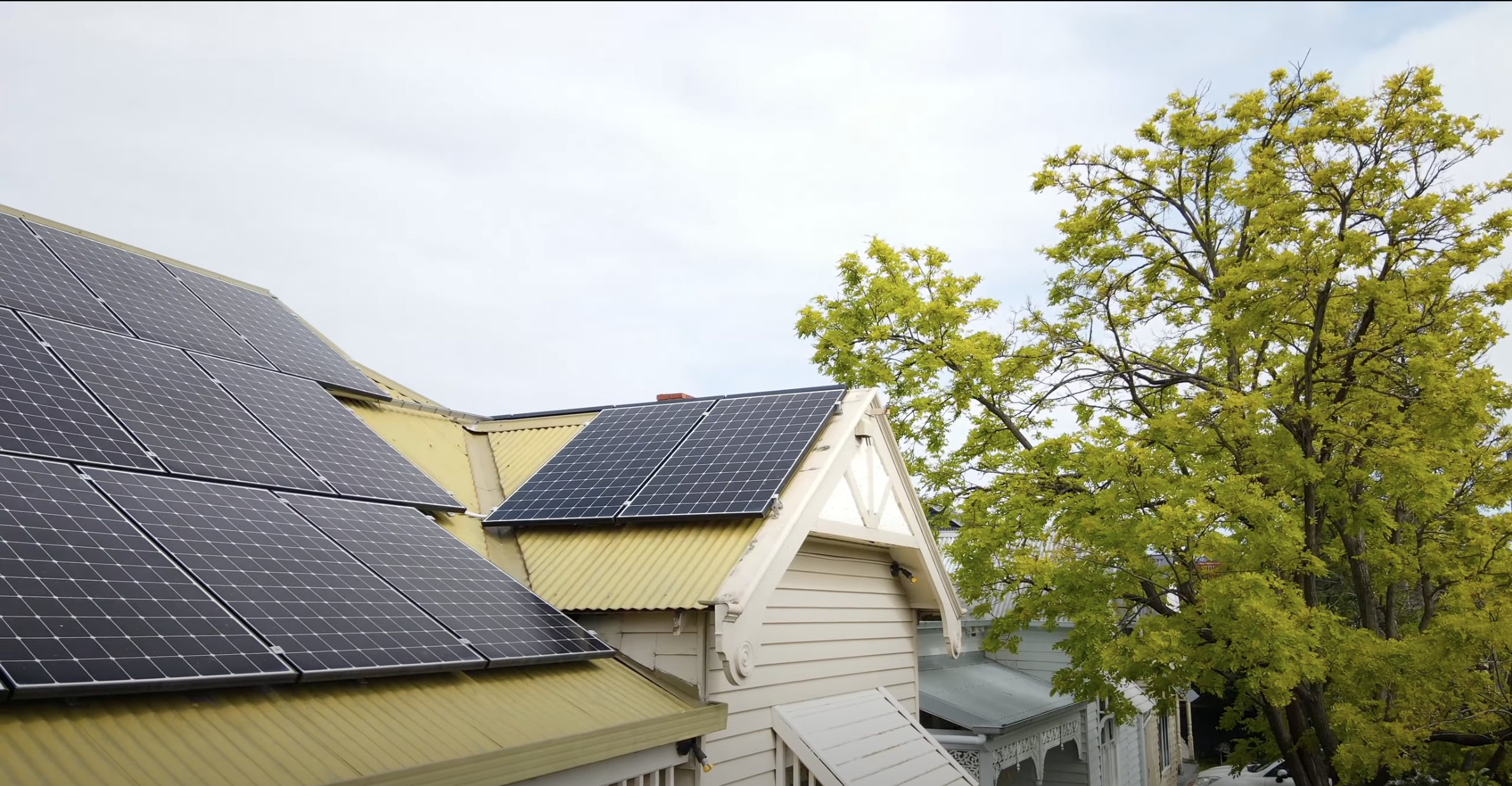
John 20:02
So 100 kilometers an hour charging, we're talking like a three hour charge. And for you, you're talking 50 kilometer range, about six hours on full charge. That's not too bad. I mean, by the morning you're freshly juiced up, right?
Matthew 20:16
Much, I plug it in at 9am when I went home. And by the time I want to go somewhere in the afternoon, it's stopped charging. I plugged off the charger and we're off. Do that again, you know, four or five days later.
John 20:29
And then you're talking a full charge for your vehicle. It's going to cost you how much?
Matthew 20:33
It's actually the power I'm getting paid for my exports to the grid. So say I was getting paid 10 cents a kilowatt hour. Well, it's effectively costing me 10 cents a kilowatt hour, because I would have been paid for that. Of course, if I want to add 300 kilometers, over six hours, that's gonna cost about six bucks. If I'm really desperate, I can forego a coffee and that will cover my transport for the week. Okay?
John 21:24
I mean, a lot of people are comparing fast charging cost to charging electric cars compared to putting petrol in a petrol car.
Matthew 21:32
Yeah. Well, thing is, with my Tesla and your one we're really lucky. We have and you can still buy me second hand, if someone's smart, we have free supercharging for life, which is an early promotion. When they brought that promotion on, there was only one supercharger available in Melbourne, and stringing them up to Sydney. So they offered this promotion, free supercharging for life. And it's with the life of the vehicle. I can just go down to Mooney ponds or down to Richmond, which are places I visit, and sit on the supercharger and charge it for free. But I can't be bothered, because it's more effort than just plugging in here and paying next to nothing to charge out the front of my home. It's really easy to charge at the front of your home. I've had people criticize me and say, oh, you know, running the charger through the pipe is way worse to go to the petrol station. I mean, get serious, you go to the petrol station. You got to pull in, you know, you gotta deal with drips, you've got to walk the door, wait in a queue to pay.
John 22:27
But anyway, I guess the point that I would like to make about that is just that the price at the supercharger is not really a representative price of how the majority of people charge their car.
Matthew 22:35
So the price of the supercharger is probably similar to petrol. But I think if you're charging at home, then you're really charging on special trips. It's going to be 5% or 10% of your driving time. The rest of time you're paying this dirt cheap price because you put your solar on and you're prepaid. And what I found with people with buying electric cars, once they choose electric cars, I said this before, they've obviously not against electric cars. They're not against solar, not against renewable energy. They believe that having clean, healthy air is a good thing. Yeah, they're all a candidate. They're all thinking, I'm going to buy solar. That's what they do. They're buying electric car. They're going to buy solar, and therefore they're going to pay their energy up front, and from that day on, it's free. They might as well charge at home. Why would they adventure out to pay more when they can charge cheaply at home?
